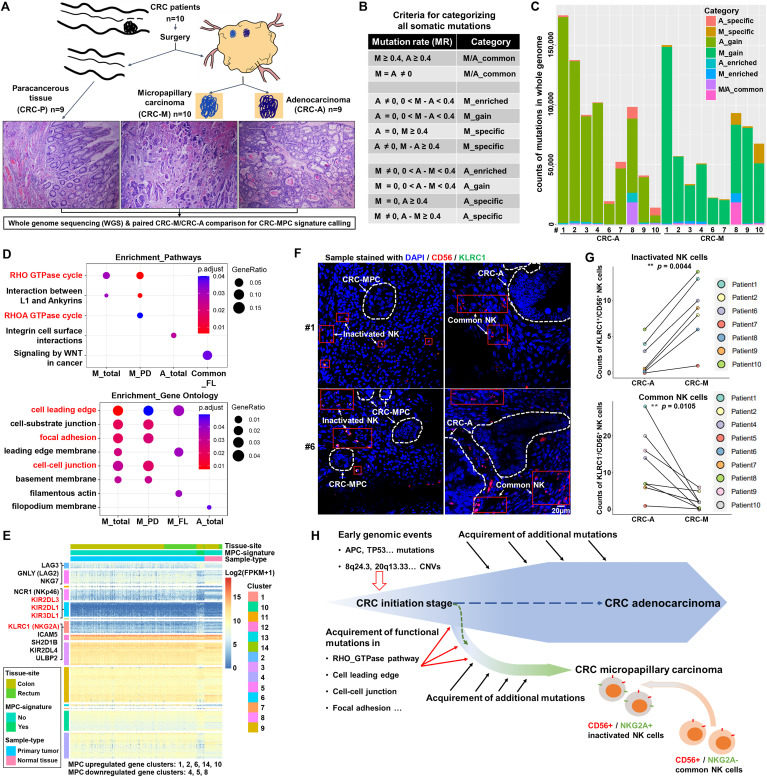
Investigation of the genome-wide signatures underlying the micropapillary carcinoma components in colorectal cancers


The invasive micropapillary carcinoma (MPC) is a rare and specialized pathologic subtype of cancer. MPCs are highly aggressive, highly metastatic, and commonly associated with poor prognosis. MPC components have been found at least in breast, bladder, lung, ovary, parotid gland, stomach, and colorectum tumors. Morphologically, MPCs typically consist of small clusters of neoplastic cells with distinct polarity reversal and tight adhesion with each other, usually situating in the tumor invasion front.1 However, pure MPC tumors are extremely rare, MPCs commonly co-exist with other pathological fractions, such as adenocarcinoma, in tumor entity, and their proportion generally ranges from 5% to 95%.1 Although highly malignant, knowledge concerning the mechanisms underlying MPC behavior and critical events driving tumor progression toward MPC remains rather limited. Recently, two reports indicate that the copy-number loss of IGSF9 (immunoglobulin superfamily 9) and PRDM16 (PR domain containing 16) and copy-number gain of ALDH2 (aldehyde dedydrogenase-2) in breast MPCs are associated with high metastatic potential2 and that the aberrant activity of RhoA plays a critical role in polarity-switching in colorectal MPCs,3 respectively.
